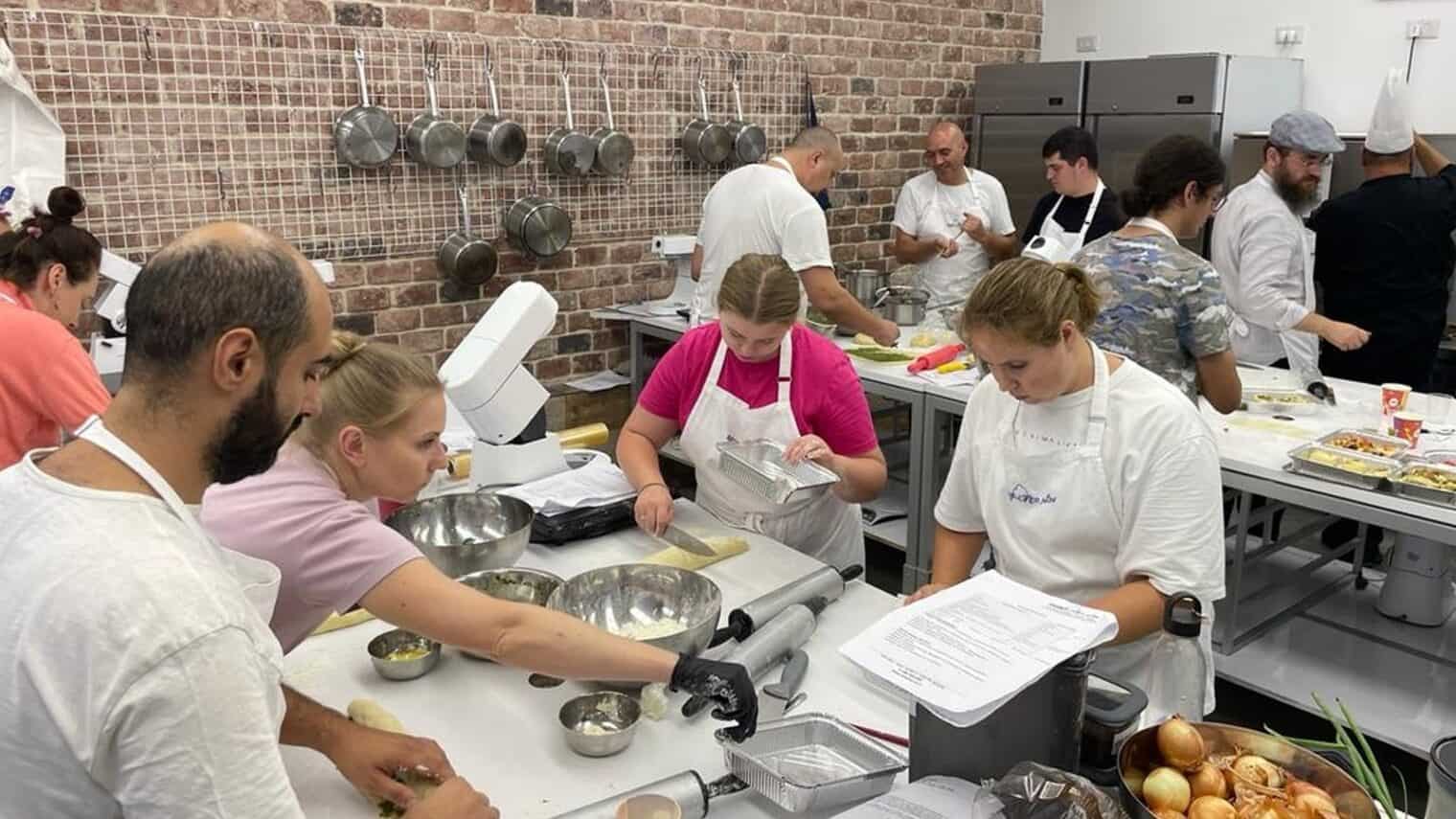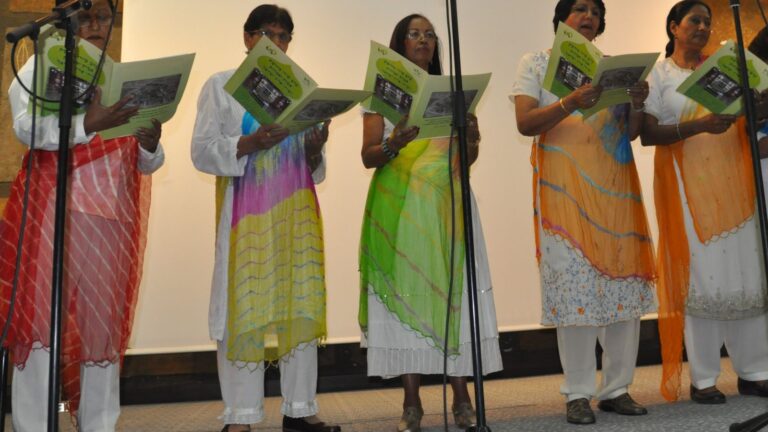Sixteen Russians and Ukrainians just finished training side by side to be chefs, as they embark on their new lives in Israel.
Their home countries may be at war, but in Israel they stand united as part of one big family.
They learned the skills they’ll need to work in professional kitchens, thanks to a free Jewish National Fund-USA program in Beersheva, the unofficial capital of Israel’s southern Negev desert region.
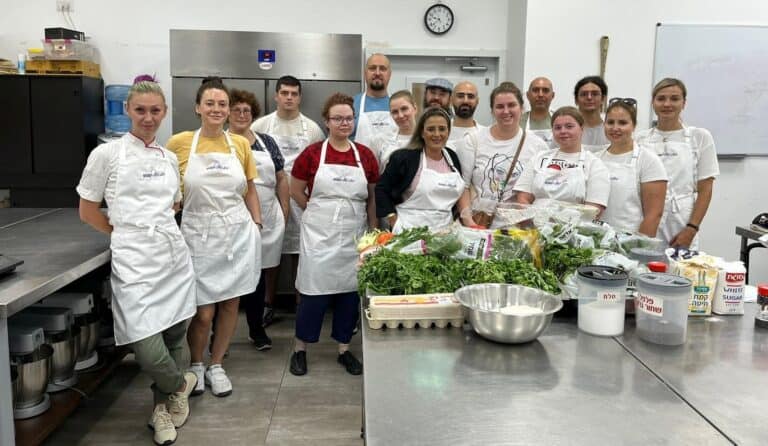
They’re adjusting to a whole new lifestyle, with their sudden move to Israel precipitated by Putin’s invasion in February 2022.
And to a new culinary landscape where there’s less demand for pelmeni (meat dumplings), borsht or beef stroganoff.
Instead, they’re preparing Israeli favorites such as falafel and hummus, as well as pasta dishes, salads, meats, pastries and more at Michlelet Hashef (Chef College). They’re also learning to adapt to Israeli preferences for more choices and bigger portions.
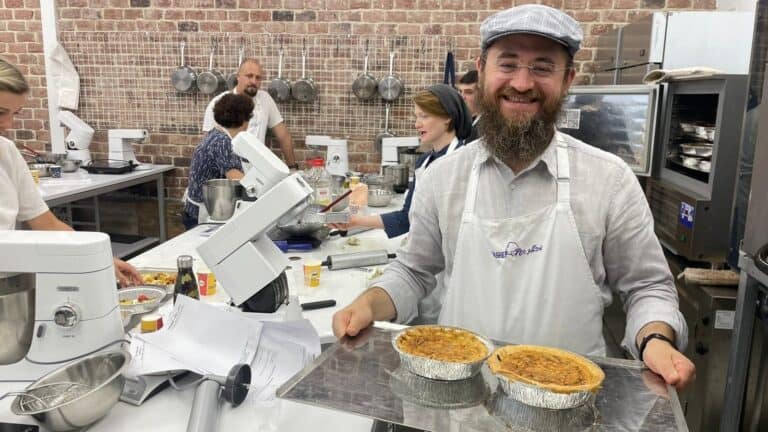
Southern cooking
More than 15,000 people fled to Israel from Ukraine in the year after the invasion, and at least twice that number from Russia.
JNF’s Lauder Employment Center helps anyone seeking a job in the Negev area, steering immigrants and Israelis away from the crowded Jerusalem-Tel Aviv-Haifa triangle that is currently home to 80 percent of the country’s population.
Anat Bondarenko, director of its Olim (Immigrants) to the Negev program, set up a special project to prepare newcomers from Russia and Ukraine for work in Israeli kitchens.
She was born in Israel, moved to Ukraine when she was nine, and returned within weeks of the invasion.
Bondarenko says some of those in the course already have culinary experience but for others it’s a completely new career.
Love at first bite
Boris Fridman, 37, moved to Israel from St. Petersburg a year ago with his wife and two young children.
He had a well-paid job as a project manager for the state-run energy corporation, overseeing a team of 50 people designing a gas processing plant.
“I always thought about moving to Israel,” he says, “but the awful events in Ukraine made me take this decision very quickly. I don’t feel comfortable with the situation in Russia.”
He doesn’t have the Hebrew skills to work here in project management, so he tried re-training as a full-stack developer, but hated it.
“I didn’t understand anything, I couldn’t sleep, I couldn’t eat,” he says. “Then one day I was scrolling through WhatsApp messages, and I saw the JNF was offering cooking classes.
“I thought it might be a good idea because I like cooking very much. I like seeing people’s reaction when they eat the food I make.”
It was love at first bite. “After the first lesson, I felt good about myself. I decided to start a cooking blog on Instagram.”
The culinary horizon
Fridman is one of six men and 10 women in the course, four from Ukraine and 12 from Russia. They attended three half-day lessons a week for seven weeks.
At the end, the went head-to-head in a MasterChef-style contest attended by restaurant and hotel chefs keen to recruit new talent.
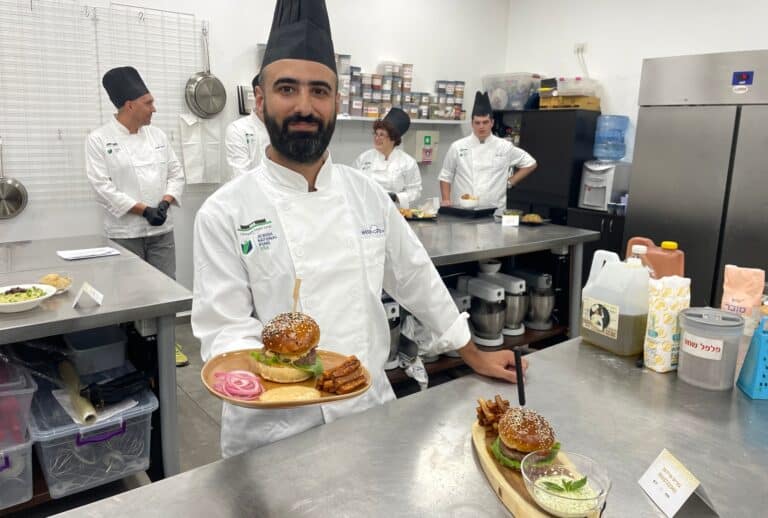
They’re competing for jobs with Giraffe (Asian-American fusion restaurant chain); Kampai sushi grill; Cramim, one of Israel’s leading chef restaurants; Kedma hotel in Sde Boker; Aquaria Restaurant in Beersheva; and pastry chef-chocolatier Moran Tabiv Zeda.
Fridman presented his unique hamburger recipe to the judges, while fellow student Dmitriy Gulidov, 39, from Chernihiv, Ukraine, served sushi.
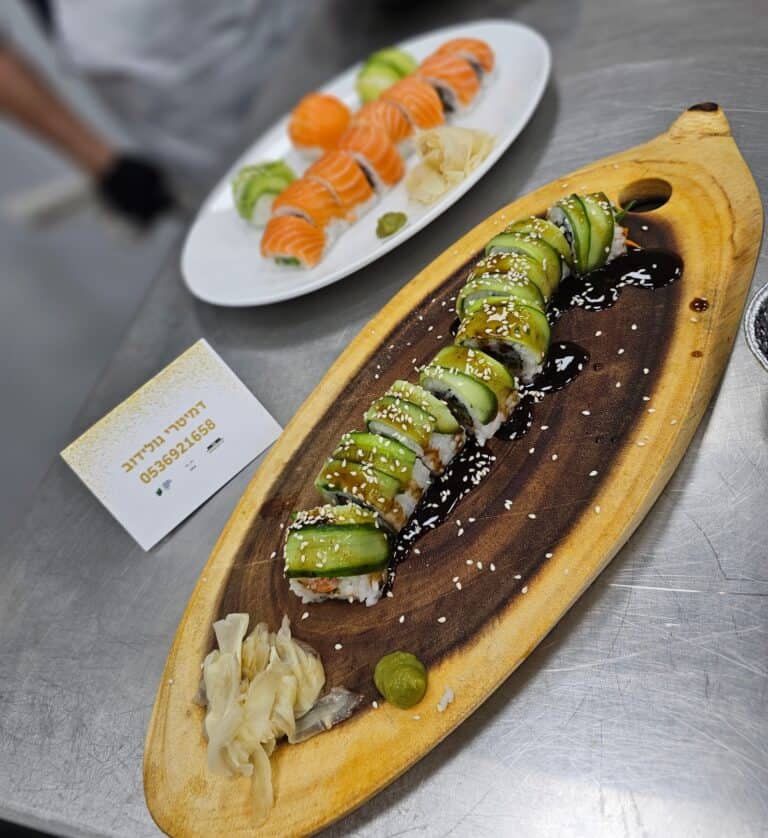
Gulidov fled with his family in April 2022, after sheltering from rockets for two weeks in the cellar of his home.
He says Russians occupied his town a day after they left, destroying the bridge that had been their escape route.
He and his wife Olga, son Vladimir, 14, and daughters Varvara, 11, and Vasilisa, three, moved in with his in-laws in Ashkelon, southern Israel.
Speaking through an interpreter, Gulidov says he’d worked in restaurants in Ukraine, but is now learning to cook a wider variety of dishes and to work in a kosher environment.
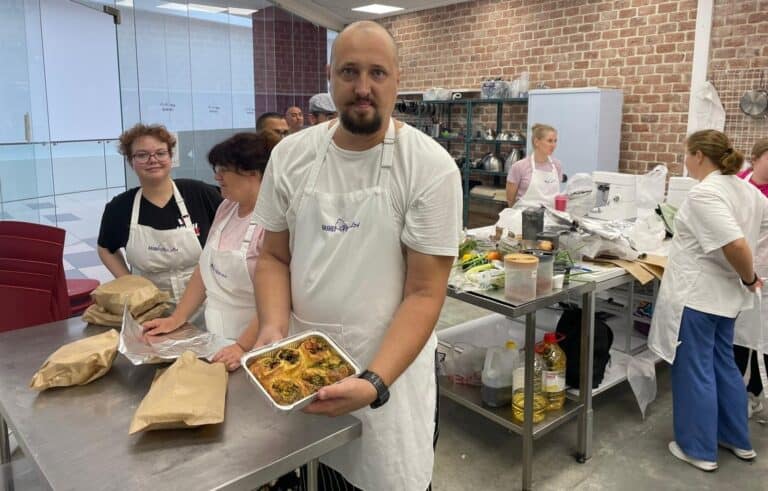
He says Israeli cuisine is lighter, with more vegetables and beans, than in Ukraine.
He worked in a factory after he arrived in Israel. He didn’t like it but he’s confident the chef course will lead to a job he’ll enjoy.
Like brothers
Gulidov’s country and Fridman’s country may be at war, but that’s not an issue for the student chefs.
“Ukrainian people are like brothers for me,” says Fridman. “I have many friends there.”
He says everyone in the course got along. “It doesn’t make a difference. We’re just a big team; we do everything together.”
Gulidov gave a fellow student from Moscow a ride from Ashkelon to Beersheva throughout the course. “Everything is positive; there’s no conflict,” he says.
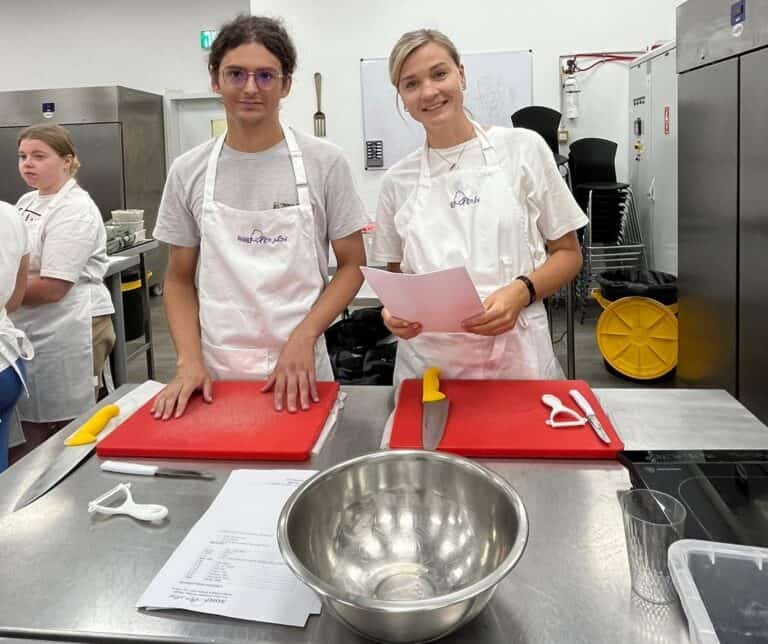
Tali Tzour, Chief of Staff for the Jewish National Fund USA in Israel, agrees.
“There is no dilemma over here,” she says. “They are all running away from their countries and Israel is their future. There’s no fight between them. Here we are all Jewish and Israeli so it doesn’t matter whether you’re from Russia, Ukraine, wherever,” she tells ISRAEL21c.
“As soon as the war started, it wasn’t only the Jewish people in Ukraine who wanted to run away. The Jewish people in Russia also felt unsafe, that there was an urgency for them also to move to Israel, that this is the safest place for them to live.”
World cuisines
Michlelet Hashef lecturer Yonatan Mishleh taught the student chefs about Thai, Japanese, Italian and other world cuisines. He also explained cultural and culinary differences.
“Israelis like to see that there’s a lot of food on their plate, even if they don’t eat it,” he says.
“Our mission is to equip the students with a solid foundation in classic culinary techniques. We provide a structured framework and we educate about kosher culinary standards often needed for employment within Israel’s diverse eateries.”
Mishleh says it has been a hugely rewarding to work with the immigrant students. His only regret is that it’s come to an end.




